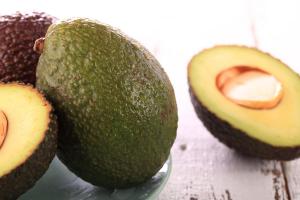Are walnut trees poisonous to other plants?
Walnut trees are a common sight in many parts of the world. While they are mostly known for their delicious nuts, there have been concerns about whether they are poisonous to other plants. In this article, we will explore this question in more detail to help you better understand the relationship between walnut trees and other plants.
What makes walnut trees unique?
Walnut trees are unique because they release a chemical called juglone. This chemical is found in the leaves, bark, and nut hulls of walnut trees. Juglone is a natural pesticide that helps to protect the tree from disease and pests. However, it also has an allelopathic effect, which means that it can inhibit the growth of other plants nearby.
What plants are affected by juglone?
Not all plants are affected by juglone. Some plants have developed a tolerance to juglone and can grow near walnut trees without any problems. However, many common garden plants are sensitive to juglone and can be affected by it. Some examples of plants that are sensitive to juglone include tomatoes, peppers, potatoes, and blueberries.
What are the symptoms of juglone poisoning?
Plants that are sensitive to juglone can exhibit a range of symptoms when exposed to the chemical. These symptoms can include yellowing leaves, stunted growth, wilting, and death. It is important to note that the symptoms may not appear immediately and can take weeks or even months to become noticeable.
How to protect sensitive plants from juglone?
If you have sensitive plants growing near walnut trees, there are steps you can take to protect them from juglone poisoning. One option is to plant a barrier of juglone-tolerant plants between the walnut tree and the sensitive plants. Some examples of juglone-tolerant plants include blackberry, raspberry, and elderberry.
Another option is to remove the leaves, bark, and nut hulls from around the walnut tree. This can help to reduce the amount of juglone that is released into the soil. However, it is important to note that this may not completely eliminate the problem.
Conclusion
Walnut trees are not poisonous to other plants, but they can release a chemical called juglone that can inhibit the growth of sensitive plants. If you have sensitive plants growing near a walnut tree, there are steps you can take to protect them from juglone poisoning. By understanding the relationship between walnut trees and other plants, you can create a healthy and thriving garden.

 how many times do yo...
how many times do yo... how many planted tre...
how many planted tre... how many pine trees ...
how many pine trees ... how many pecan trees...
how many pecan trees... how many plants comp...
how many plants comp... how many plants can ...
how many plants can ... how many plants and ...
how many plants and ... how many pepper plan...
how many pepper plan...
































